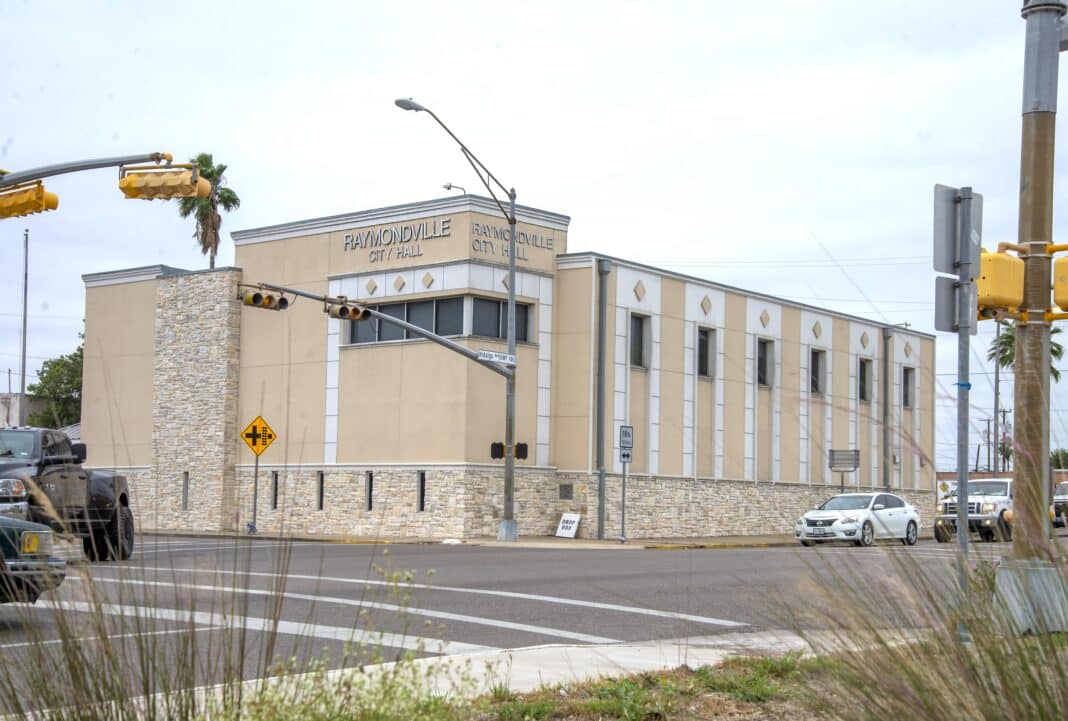RAYMONDVILLE — The city is pumping its $2.69 million stimulus check into projects aimed at helping sustain itself through drought while expanding its 25-year-old sewer plant.
Across the Rio Grande Valley and around the nation, local governments are counting on the $1.9 trillion American Rescue Plan Act to spark recovery from the coronavirus pandemic’s economic slowdown while igniting a construction boom.
At City Hall, City Manager Eleazar Garcia is planning to earmark $1 million to build Raymondville’s second deep water well as part of a plan to help the city sustain itself through drought.
Meanwhile, he’s tapping $1.6 million to expand the sewer plant to treat an additional 500,000 gallons a day.
“It’s for future growth,” Mayor Gilbert Gonzales said Monday.
Hard lesson
In 2013, local officials learned hard lessons from a near-record drought which led the Delta Lake irrigation district, Raymondville’s main surface water source, to warn the city — standing 16 miles from the Edcouch lake — could run dry.
Now, the city, which uses as much as 1.7 million gallons of water a day, is planning to make itself even more self-sustaining.
“We’re trying to plan for drought when we can’t buy from Delta Lake,” Garcia said. “If we didn’t have surface water, we’d need two million gallons coming out of the ground.”
So Garcia is planning to build the city’s second water well capable of drawing one million gallons of water a day from the region’s aquifer about 1,500 feet deep.
“The idea is water reliability,” he said.
Alternative water sources
In 2014, Garcia landed the city a $350,000 grant from the Texas Department of Agriculture to build Raymondville’s first water well in about 70 years. About three months ago, the city’s old well, drilled during the historic 1950s drought, collapsed.
In 2018, the new well hit groundwater deep in the region’s aquifer at 1,500 feet, drawing as much as one million gallons a day.
Then about six months ago, the city opened a $4.5 million reserve osmosis plant to turn the salty, brackish groundwater into an alternative water source.
To fund the project, the Texas Water Development Board gave the city a $2 million grant along with a 20-year $2.5 million loan at an average interest rate of about 2.5 percent.
Through its filtration system, the reverse osmosis plant cleans and softens the water.
Today, the city is drawing about half its water from Delta Lake, treating it at its water plant then mixing it with its reverse osmosis water.
“It’s great,” Garcia said. “It’s pretty good water.”
Model project
At the irrigation district, General Manager Troy Allen has hailed the project as a model for the region.
Now, the city’s second water well will further cut its dependence on Delta Lake’s water, Gonzales said.
In Cameron and Willacy counties, Raymondville’s become the third city to build reverse osmosis plants, along with Brownsville and Rancho Viejo.
“If there’s a drought, the city will not go dry,” Gonzales said. “Our goal is to use push water and well water. We don’t want to be dependent so much on push water — and it will be great to relieve the lake.”
Sewer plant expansion
As officials plan for the future, Garcia is tapping $1.6 million in stimulus money to expand the city’s 25-year-old sewer plant.
Now, the plant is treating about 1.5 million gallons a day.
On the drawing board, Garcia is planning to expand the plant to treat as much as an additional 500,000 gallons a day.
For both projects, he is working to launch construction by next spring, estimating their completion about a year later.




